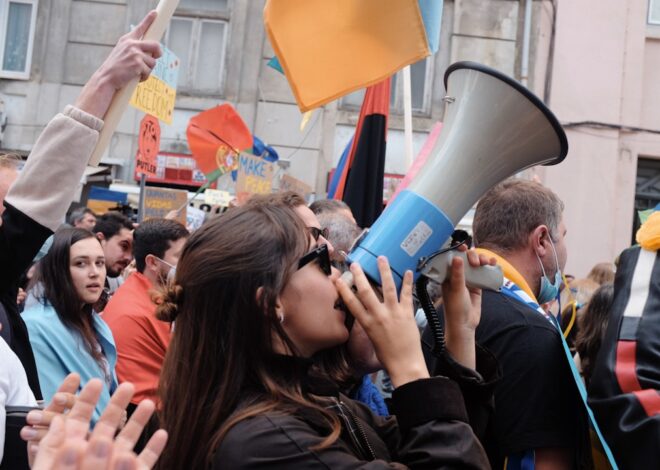
Remembering Nelson Mandela: A Legacy of Courage and Compassion
Nelson Mandela stands as a towering figure in the annals of history, not merely as a leader of South Africa but as a global symbol of resistance against oppression and a champion of human rights. His life and work transcended national boundaries, inspiring movements for justice and equality across the globe. Mandela’s impact is felt not only in the political realm but also in the hearts and minds of individuals who strive for freedom and dignity.
His journey from a rural village to the presidency of South Africa encapsulates a narrative of resilience, courage, and an unwavering commitment to justice that resonates with people from all walks of life. Mandela’s influence extends beyond his immediate achievements; it is woven into the fabric of contemporary discussions about race, justice, and reconciliation. His ability to unite a fractured nation and promote peace in the face of deep-seated animosities serves as a powerful reminder of the potential for transformative leadership.
As we delve into the various phases of Mandela’s life, we uncover the layers of his character and the principles that guided him, revealing why he remains an enduring icon of hope and change.
Key Takeaways
- Nelson Mandela’s impact on the world is undeniable, as he became a symbol of hope, resilience, and reconciliation.
- Mandela’s journey to becoming a leader was marked by his early life struggles and his activism against apartheid in South Africa.
- Despite enduring 27 years in prison, Mandela remained resilient and unwavering in his fight for justice and equality.
- Mandela’s approach to reconciliation and forgiveness played a crucial role in healing a divided nation and promoting unity in South Africa.
- Mandela’s presidency and legacy left a lasting impact on South Africa, as he worked towards building a more inclusive and equal society.
Early life and activism: Mandela’s journey to becoming a leader
Born on July 18, 1918, in the small village of Mvezo in the Eastern Cape, Nelson Mandela was raised in a society deeply entrenched in racial segregation and inequality. His early life was shaped by the traditions of the Xhosa people and the values instilled in him by his family. After moving to Johannesburg to pursue higher education, Mandela became increasingly aware of the injustices faced by black South Africans under apartheid.
This awareness ignited a passion for activism that would define his life. He joined the African National Congress (ANC) in 1943, where he quickly rose through the ranks, advocating for civil rights and social justice. Mandela’s activism was characterized by a strategic approach to resistance.
He was instrumental in organizing protests, strikes, and campaigns against discriminatory laws. The Defiance Campaign of 1952 marked a significant turning point in his activism, as it mobilized thousands of South Africans to challenge apartheid laws through nonviolent means. However, Mandela understood that peaceful protests alone would not suffice in dismantling an oppressive regime.
This realization led him to co-found the ANC’s armed wing, Umkhonto we Sizwe, in 1961, which marked a shift towards more militant forms of resistance. His early experiences laid the groundwork for his later leadership, as he learned to navigate the complexities of political struggle while remaining committed to the principles of justice and equality.
Imprisonment and resilience: Mandela’s struggle for justice

Mandela’s commitment to justice came at a steep price. In 1962, he was arrested and subsequently sentenced to life imprisonment for his involvement in anti-apartheid activities. His incarceration on Robben Island became emblematic of the struggle against apartheid, as he endured harsh conditions and isolation for 27 years.
Despite the physical and emotional toll of imprisonment, Mandela’s spirit remained unbroken. He used his time in prison to reflect on his beliefs and strategies, emerging as a symbol of resilience for millions around the world. During his imprisonment, Mandela became a focal point for the anti-apartheid movement.
His name became synonymous with the fight for freedom, galvanizing international support for sanctions against South Africa. The global campaign to free Mandela highlighted the moral imperative to confront injustice, leading to widespread protests and advocacy efforts that transcended borders. Even within the confines of prison, Mandela maintained communication with fellow activists and continued to inspire those fighting for equality.
His resilience not only fortified his own resolve but also served as a beacon of hope for those who believed in a just future.
Reconciliation and forgiveness: Mandela’s approach to healing a divided nation
| Metrics | Data |
|---|---|
| Reconciliation | Mandela’s approach focused on promoting reconciliation between the black and white communities in South Africa. |
| Forgiveness | He emphasized the importance of forgiveness as a means to heal the wounds of the past and move forward as a united nation. |
| Healing | Mandela’s approach aimed at healing the divisions and scars left by apartheid through dialogue, understanding, and empathy. |
| Nation-building | His efforts contributed to the process of nation-building by fostering a sense of unity and common purpose among South Africans. |
Upon his release from prison in 1990, Mandela faced the monumental task of healing a nation scarred by decades of racial division and violence. Rather than seeking retribution against those who had oppressed him and his people, Mandela championed reconciliation as a means to forge a new South Africa. He understood that true healing required acknowledging past injustices while fostering an environment where all citizens could coexist peacefully.
This vision culminated in the establishment of the Truth and Reconciliation Commission (TRC), which aimed to uncover the truth about human rights violations during apartheid while promoting forgiveness. Mandela’s approach was rooted in empathy and understanding. He often spoke about the importance of recognizing the humanity in others, even those who had perpetrated violence against him and his community.
By advocating for forgiveness rather than vengeance, he set an example that resonated deeply within South Africa and beyond. His famous quote, “Resentment is like drinking poison and then hoping it will kill your enemies,” encapsulates his belief that healing could only occur through compassion and dialogue. This philosophy not only helped to stabilize South Africa during its transition to democracy but also provided a framework for other nations grappling with their own histories of conflict.
Presidency and legacy: Mandela’s leadership and impact on South Africa
In 1994, Nelson Mandela made history by becoming South Africa’s first black president in a landmark election that symbolized the end of apartheid. His presidency was marked by efforts to dismantle institutional racism and promote social justice. Mandela prioritized nation-building initiatives aimed at addressing economic disparities and improving access to education and healthcare for marginalized communities.
His leadership style was characterized by humility and inclusivity; he sought to unite a diverse nation under a common vision of equality and prosperity. Mandela’s legacy as president is often defined by his commitment to democratic principles and human rights. He championed policies that aimed to uplift previously disenfranchised populations while fostering economic growth through inclusive development strategies.
His administration also focused on international diplomacy, positioning South Africa as a leader on the global stage. The establishment of the Nelson Mandela Foundation after his presidency further solidified his commitment to social justice, education, and human rights advocacy, ensuring that his vision would continue to inspire future generations.
Global influence: Mandela’s role in promoting human rights and equality worldwide

Nelson Mandela’s influence extended far beyond South Africa; he became a global ambassador for human rights and equality. His advocacy for social justice resonated with movements around the world, from civil rights struggles in the United States to anti-colonial movements in Africa and beyond. Mandela’s ability to articulate the universal struggle for freedom made him a sought-after speaker at international forums, where he emphasized the interconnectedness of human rights issues across borders.
Mandela’s legacy is particularly evident in contemporary discussions about systemic racism, inequality, and social justice movements worldwide. His life’s work serves as a reminder that the fight for human rights is ongoing and requires collective action. The principles he espoused—such as dignity, respect, and equality—continue to inspire activists who seek to challenge oppressive systems globally.
Organizations dedicated to human rights often invoke Mandela’s name as they strive to uphold his vision of a just world where every individual is treated with respect.
Continuing the legacy: How Mandela’s principles continue to inspire future generations
The principles championed by Nelson Mandela remain relevant today as new generations grapple with issues of inequality, discrimination, and injustice. Educational initiatives that focus on his life story serve as powerful tools for instilling values of empathy, resilience, and social responsibility among young people. Schools around the world incorporate lessons about Mandela’s journey into their curricula, emphasizing not only his achievements but also the importance of standing up against injustice.
Moreover, numerous organizations have emerged that draw inspiration from Mandela’s legacy, focusing on youth empowerment, community development, and social justice advocacy. Initiatives such as “Mandela Day,” celebrated annually on July 18th, encourage individuals to dedicate time to community service in honor of his commitment to social change. This call to action reflects Mandela’s belief that each person has the power to make a difference in their community, reinforcing the idea that collective efforts can lead to meaningful change.
Reflecting on Mandela’s enduring legacy of courage and compassion
Nelson Mandela’s life is a testament to the power of courage and compassion in effecting change. His journey from humble beginnings to global icon illustrates how one individual can inspire millions through unwavering dedication to justice and equality. As we reflect on his enduring legacy, it becomes clear that Mandela’s principles continue to resonate across generations, urging us all to confront injustice wherever it exists.
In an era marked by division and strife, Mandela’s message remains vital: true progress requires empathy, understanding, and a commitment to reconciliation. His life serves as both an inspiration and a challenge—to strive for a world where dignity is afforded to all individuals regardless of their background or circumstances. As we carry forward his legacy, we are reminded that each act of kindness contributes to a larger tapestry of change, echoing Mandela’s belief that together we can build a more just and equitable world for future generations.
FAQs
Who was Nelson Mandela?
Nelson Mandela was a South African anti-apartheid revolutionary, political leader, and philanthropist who served as President of South Africa from 1994 to 1999. He was the country’s first black head of state and the first elected in a fully representative democratic election.
What is Nelson Mandela known for?
Nelson Mandela is best known for his role in the anti-apartheid movement in South Africa and for his efforts to promote reconciliation and peace. He spent 27 years in prison for his activism and was a key figure in the negotiations to end apartheid and establish multiracial elections in South Africa.
What is the significance of Nelson Mandela’s presidency?
Nelson Mandela’s presidency marked the end of apartheid in South Africa and the beginning of a new era of democracy and equality. He worked to heal the racial divisions in the country and promote reconciliation between the different ethnic groups.
What awards and honors did Nelson Mandela receive?
Nelson Mandela received numerous awards and honors, including the Nobel Peace Prize in 1993. He was also awarded the US Presidential Medal of Freedom and the Soviet Order of Lenin, among many others.
What is Nelson Mandela’s legacy?
Nelson Mandela’s legacy is one of courage, resilience, and leadership in the face of adversity. He is remembered for his commitment to justice, equality, and human rights, and his efforts to promote peace and reconciliation. His life and work continue to inspire people around the world.


